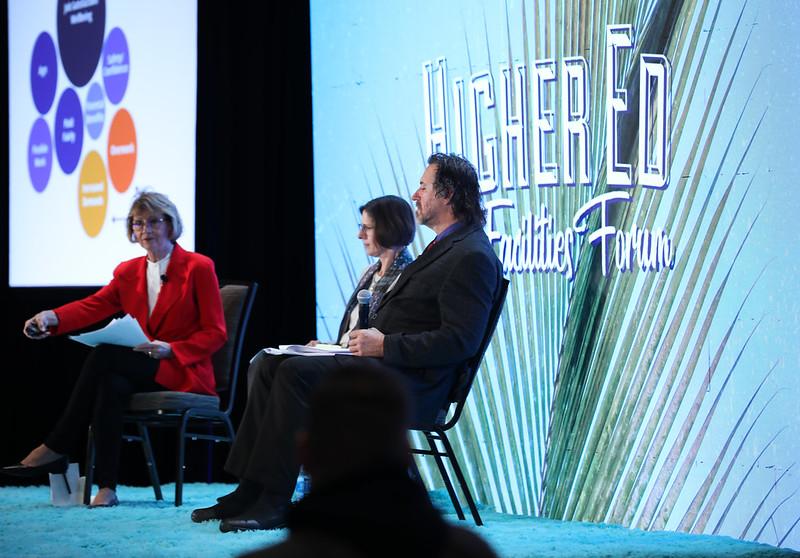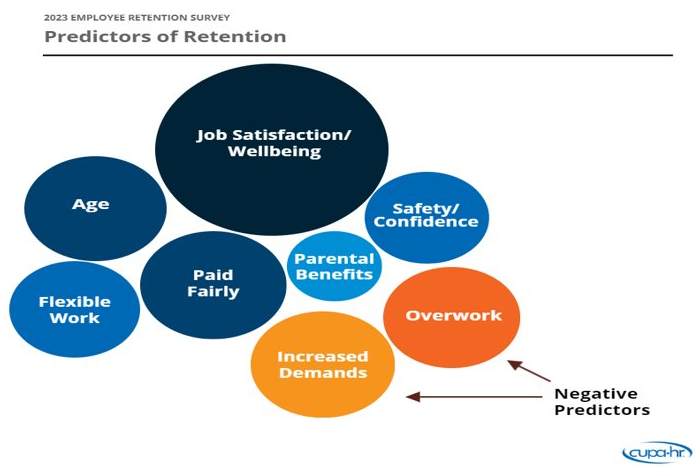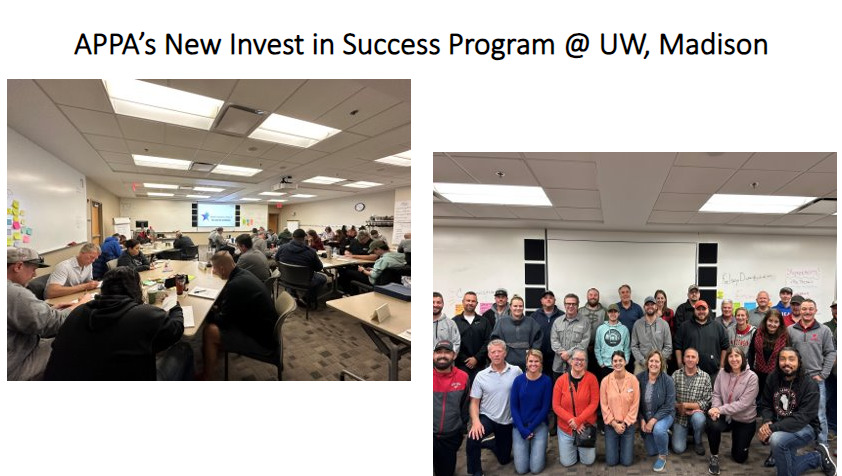
Of all the factors impacting educational institutions’ stability and productivity, workforce development and retention may be the one affecting facilities management staff most acutely. Panelists at the Higher Ed Facilities Forum in Austin, Texas, explored this topic November 14, noting that a long-term concerted investment in staff professional development can be the critical difference between high productivity, engagement, and retention among facilities staff and persistent struggles involving frequent turnover, difficult-to-fill positions, and growing lists of capital renewal/ recapitalization.
The panelists in this discussion were APPA President and CEO Lander Medlin, along with Jim Jackson, associate vice chancellor of university operations at the University of Nebraska, Lincoln, and Margaret Tennessen, deputy chief facilities officer at the University of Wisconsin, Madison.

Panelists also explored how facilities employees feel more valued and likely to make positive contributions when their supervisors recognize their contributions and encourage their professional development, noting parallel findings in the CUPA-HR 2023 Higher Education Employee Retention Survey, which Medlin spoke about in October. She expanded on these findings by previewing a new professional development program that APPA will launch soon, Invest in Success, which provides front-line facilities/operations staff with training around building trust, emotional intelligence, effective communication, and teamwork overall. Jackson and Tennessen helped develop and facilitate Invest in Success pilot programs on their university campuses this fall. The panel elaborated on how creating a sense of belonging for all employees goes a long way toward increased job satisfaction and positive health and wellness. It’s the workplace environment that makes an organization and its institution the “employer of choice” so necessary to managing this talent shortage, they said.

In an interactive discussion, the panelists engaged higher-ed facilities leaders in a series of questions intended to size up attitudes about staff training and development. Asked whether they were intentionally investing in or deferring this, most attendees (73%) said they were intentionally investing in professional development at their institutions. Asked to identify the percentage of the total budget they spend on professional development, attendees hovered in the 1–3% range, although they recognized the need to spend more in this area of need. And pressed to identify the perceived barriers to making this investment, they naturally said funding/budget constraints, but their most identified barrier stated was “time.”
Workforce challenges and solutions, Medlin added, will be a key topic at the APPA 2024 Spring Conference in Nashville and in a series of articles in upcoming Facilities Manager magazine.
“Although facilities management plans, constructs, and maintains buildings, we’re really in the people business,” she said.
Related: Medlin: “Sense of Belonging” Critical for Addressing Recruitment and Retention Crisis
 Create an Account
Create an Account
 Login/myAPPA
Login/myAPPA
 Bookstore
Bookstore
 Search
Search  Translate
Translate 

